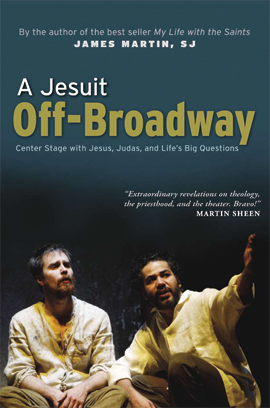"The Greatest Gift,"
by Binka Le Breton
Read this story about the life of Sister Dorothy Stang and you'll get angry about the evil and the injustice in our world.
Sister Dorothy would look you in the eye and very kindly tell you not to get angry -- do something about it.
This sister with a passion to help the poorest of the poor and a mind all her own about how to that help would tell you that working for justice is difficult but wonderfully rewarding. Unfortunately, Sister Dorothy isn't alive to tell us anything. A pistol was emptied into her in the Amazon jungle in Brazil just three years ago.
Fortunately, because the murder of this petite Sister of Notre Dame de Namur happened not long ago, many who knew and worked with Sister Dorothy are around to tell her story: the poor who strive to eke a living out of Amazonia; other nuns and lay people who shared her work; a bishop who opened his house to her whenever she needed shelter and sanctuary; and even an eyewitness to her murder.
"The Greatest Gift" shares a little of what many will find typical in the early life of Dorothy Mae Stang, daughter of a Dayton, Ohio family. Those early-life chapters may be the only ones in the book that don't deliver eye-opening insight into the violence that is life for so many in the developing world. This is a book that lets us in on what is happening in parts of the planet where "development" equals greed and where law and civic authorities fail in their duty to protect people's rights -- even their right to life. It's a book, too, that explores just what it is that makes a person live and die for a cause, for others.
Initially a teaching nun and then a principal in the United States, Sister Dorothy's work with the migrant community in Arizona earned flattering copy in the Arizona Republic. It was that work with the poor in the Southwest that whet her appetite to work with those who have little or nothing. She asked to be assigned as a missionary, and spent 30 years in Brazil, most of it helping that country's poor stay alive, feed their families, and take steps toward fulfillment -- both temporal and spiritual.
When Sister Dorothy arrived in 1966, the part of Brazil to which she was sent was best described as a feudal state controlled by a few families of landowners and politicians. When the missionaries put religious texts to Brazilian music, the authorities confiscated the song sheets and threw some priests in jail. Their crime? The lyrics said that God created all people equal. Obviously the ruling class couldn't have that.
During Sister Dorothy's three decades in Brazil, the government was encouraging large-scale settlement of the western Amazon. The mantra was "Land for Men for Men Without Land," and the poor and the landless poured into the forest, felling trees and planting crops by the thousands of acres. Sister Dorothy was one of the missionaries who went west with them. She taught people about their rights, helped to establish farm workers' unions, gave literacy classes, built a center to train teachers, started some little stores, a warehouse, a fruit processing plant, a community trading post, a women's association that focused on health care.
It was when she fought for land reform that she ended up on a death list. She stood up for stewardship of the land, conservation and interdependence with nature. She developed a program -- adopted by the government -- that taught people an agriculture method that utilized the forest instead of cutting it down. She travelled to civic offices to secure the paperwork that would verify her people's ownership of the tracts they had settled on and planted only to have corrupt politicians, police and the Brazilian military sit by and watch greedy ranchers send armed men to chase the poor off that same land.
Her best friend, Joan, talks about Sister Dorothy Stang with these words:
"She was a strong woman," Joan said, "but sometimes very obstinate. She had a soft voice that echoed through the halls of government offices and bounced off the giant trees of the forests, the same soft voice that could soothe an aching heart and assure someone that God loved them."
She added, "Dot had a mind that could understand the laws of land reform, the intricacies of sustainable farming, the impact of the destruction of the forest on the world now and in the future, and the hope and conviction that one voice could make a difference."
In June of 2004 the Brazilian Bar Association gave Sister Dorothy the Humanitarian of the Year Award. Nine months later, a paid gunman shot her down on a dirt road in the jungle. More people need to know about this heroine, so that her work continues. -- bz
Sunday, March 30, 2008
Tragedy that is Brazil plays out in nun's martyrdom
Labels:
Amazon,
Brazil,
Catholic,
development,
missionary,
Sister of Notre Dame,
Third World
Subscribe to:
Post Comments (Atom)



1 comment:
Dear Bob,
Thank you for supporting the book by Binka Le Breton, "The Greatest Gift." Dorothy also has siblings who loved her very much and were very close to her and are continuing this struggle for justice with the Sisters of Notre Dame de Namur in Brazil. Even though we are in our 70s and 80s we have traveled to Brazil and were with her when she received her award in December 2004 and went to her grave and to the very difficult trials over the past several years.
David Stang
Post a Comment